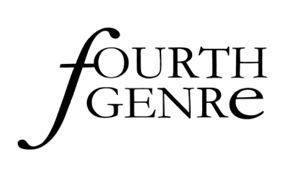

2024 Contest News
by 4thgenre | Aug 7, 2024 | News
2024 Michael Steinberg Memorial Essay Prize Winner!
Thank you to everyone who entered this year’s Michael Steinberg Memorial Essay Contest. Our judge, Sarah Viren, has selected the essay “Washtub, Whelk, Widow, Woods” by Jessie van Eerden as the 2024 winner.
Here is what Viren had to say about the winning essay: “ I am tempted to call ‘Washtub, Whelk, Widow, Woods’ a meeting of Velimir Khlebnikov and Marilynne Robinson, of Saint Augustine and Rebecca Solnit, but this essay is all its own. I read and reread it in a state of awe, amid feelings of both delirium and discovery, and with first a sense and then a growing conviction that I had stumbled upon something utterly beautiful and totally new. ”
Jesse van Eerden will receive a $1,000 award for her essay and will be featured in issue 27.1 (Spring 2025) of Fourth Genre: Explorations in Nonfiction.

Jessie van Eerden
Jessie van Eerden holds a BA in English from West Virginia University and an MFA in nonfiction writing from the University of Iowa. Her work has appeared in The Oxford American , River Teeth , Image , Bellingham Review , Willow Springs , Gulf Coast , New England Review , AGNI , and other publications. In addition to three novels, and inclusion in other publications, van Eerden is the author of a collection of portrait essays, The Long Weeping , published by Orison Books (2017), which won the 20th annual Foreword INDIES Book of the Year Award in the essay category. Her second collection of essays, Yoke & Feather , releases with Dzanc in November 2024. Other recognition includes the Gulf Coast Prize in Nonfiction, a Mid Atlantic Arts Foundation Fellowship, and residencies at the Virginia Center for the Creative Arts, Fundación Valparaíso, Wildacres, and Ucross.
HONORABLE MENTIONS
Sarah Viren also selected three honorable mentions from this year’s highly saturated pool of phenomenal nonfiction.
Of “ A Lexicon for Mothers of the Suicidal (Quantum Version) ” by Miel Sloan, Viren said: “ An incredible feat of both form and voice, “A Lexicon for Mothers of the Suicidal (Quantum Version)” captures the frenzied worry of a parent with a child in danger, and the magical thinking that accompanies such a threat. This is, at its heart, an essay about love, and a heartbreaking one at that. “

Miel Sloan is the pen name for a poet and writer who is publishing under a pseudonym to protect her son. She is currently writing a memoir about raising a son with mental illness; the title piece “Mother Matter” is in the current edition of Alaska Quarterly Review . Her essay “Letter to the Insurance Company Psychiatrist” recently appeared in Pulse: Voices from the Heart of Medicine ( https://pulsevoices. org/stories/letter-to-the- insurance-company-psychiatrist ), and her ”Letter to My Suicidal Son, Take Three” was a runner up in the 2023 WOW writing contest: https://www.wow- womenonwriting.com/downloads/ printable/109-FE1- Q42023EssayContest-Miel-Sloan. html . You can follow her on Twitter: @MielSloan
Of “Synesthesia: Twister Edition” by Julie Marie Wade, Viren said: ” Like all great essays, ‘Synesthesia: Twister Edition’ offers the reader a peek into the idiosyncrasies of a single mind, and in doing so reminds us of the multitudes we all contain. Whimsical and shapeshifting, this essay made me laugh out loud but it also rewired my brain, filling colors into the spaces that language has long occupied, seemingly alone.”


Julie Marie Wade
Julie Marie Wade is the author of 16 volumes of poetry, prose, and hybrid forms, including the newly released lyric essay chapbook, Fugue: An Aural History (New Michigan Press, 2023) and the newly released lyric essay collection, Otherwise (Autumn House Press, 2023), selected by Lia Purpura as the winner of the 2022 Autumn House Nonfiction Book Prize. A winner of the Marie Alexander Poetry Series and the Lambda Literary Award for Lesbian Memoir and a recipient of grants from the Kentucky Arts Council and the Barbara Deming Memorial Fund, Julie has taught in the creative writing program at Florida International University since 2012. She lives with her spouse Angie Griffin and their two cats in Dania Beach.
Of “The Physics of Marriage” by Andi Myles, Viren said: “ Surprising, forthright, and beautifully told, ‘The Physics of Marriage’ is one of the best essays on marriage I’ve ever read. By holding its subject at arms’ length, this essay shows us the intimacy and fragility of any long-term coupling, but also the desire–no the need–to solve that sticky problem of human (in)compatibility. “

Andi Myles lives in the Washington DC area with her husband, two children, and four chickens. She works as a science writer and strongly believes in the Oxford comma. Her creative work often draws from the natural world—science, math, and the environment—as a lens to color and clarify human experiences.
Andi received her MFA from Sarah Lawrence College. She currently the Nonfiction Editor of Honeyguide Literary Magazine . Her lyric essay, “Impressions from a Vacuum,” was listed as “Notable” in The Best American Essays. Her work was nominated for a Pushcart Prize, selected as a finalist in multiple contests, and her pieces have appeared in Rattle,TahomaLiterary Review, and Brink Literary Journal , amongst others.

Fourth Genre
There are presently no open calls for submissions.
NOTICE: We're currently beta testing a new submission manager. If you'd like to submit to our Fall 2020 General submission period, please follow this link :
We will begin accepting submissions on september 1st, 2020..
Published twice annually by the Michigan State University Press, Fourth Genre is a literary journal devoted to publishing notable, innovative work in creative nonfiction. We love essays in which the ideas accrete, accumulate, and augment, but definitely not those that appropriate. We don’t want essays about your penis. We don’t want essays about your cat. Well, some of us do. But we’re in a market of cat-saturation right now, so paw softly.
During our editorial discussions, these are some of the questions we find ourselves asking: Whose story is it to tell? Whose voice is this essay amplifying? Whose existence is it erasing? How does the writer situate their experiences and histories in relation to other experiences and histories? What’s this essay doing or addressing that we haven’t seen before?
We are thirsty for essays that give us something to drink besides mainstream ideologies and forms, that showcase imagination and meaning-making capacities, that embrace a love of a sentence’s shape. That center the margin or marginalize the center, or even better, that blow up the center-margin borders. We want essays that make the common uncommon—that’s not about the thing that it’s actually about. You know, the essay about your shoelace that’s not really about your shoelace. We want to read more of the nonfiction essays that reflect the intersections of race, ethnicity, culture, class, identity, gender, sexuality, diasporas, borderlands … that are cultural, lyrical, experimental, personal, environmental, self-interrogative, meditative, and reflective, as well as expository, analytical, exploratory, or whimsical. Although we can’t publish in color, we’re interested in essays with visual elements—graphic essays, blackout essays, and so on. We want to publish the best creative nonfiction essays, understanding that notions of “best,” of taste and genre, are political and cultural.
The two (2) issues come out usually, hopefully, in late August and early February. The February issue contains the contest winner and is featured at the annual AWP conference.
- General submissions are accepted September 1 - November 30 only. Reading fee is $4. Authors selected for publication are paid with two (2) complimentary copies of the journal.
- Where Submittable prompts you to create a cover letter, please include your name, mailing address, phone number, email address, and title of piece, and approximate word count. But DO NOT include your name or contact information anywhere on the manuscript you upload--not even in the file name.
- 8,000 word limit
- Multiple submissions not accepted from individual authors during the general submissions period.
- Simultaneous submissions are accepted, but require immediate notification to Fourth Genre if accepted elsewhere
- Fourth Genre Steinberg Essay Prize submissions are accepted January 1 - March 15 only. For additional information about contest submissions, visit the Essay Prize Page .
- Reading fee for the Essay Prize: $20 (U.S.) for each individual submission (multiple submissions accepted).
- NOTE: For both reading periods, we read blind, so be sure your name or any other identifying information does not appear on the manuscript or in the file name.
CLICK HERE TO SUBMIT

IMAGES